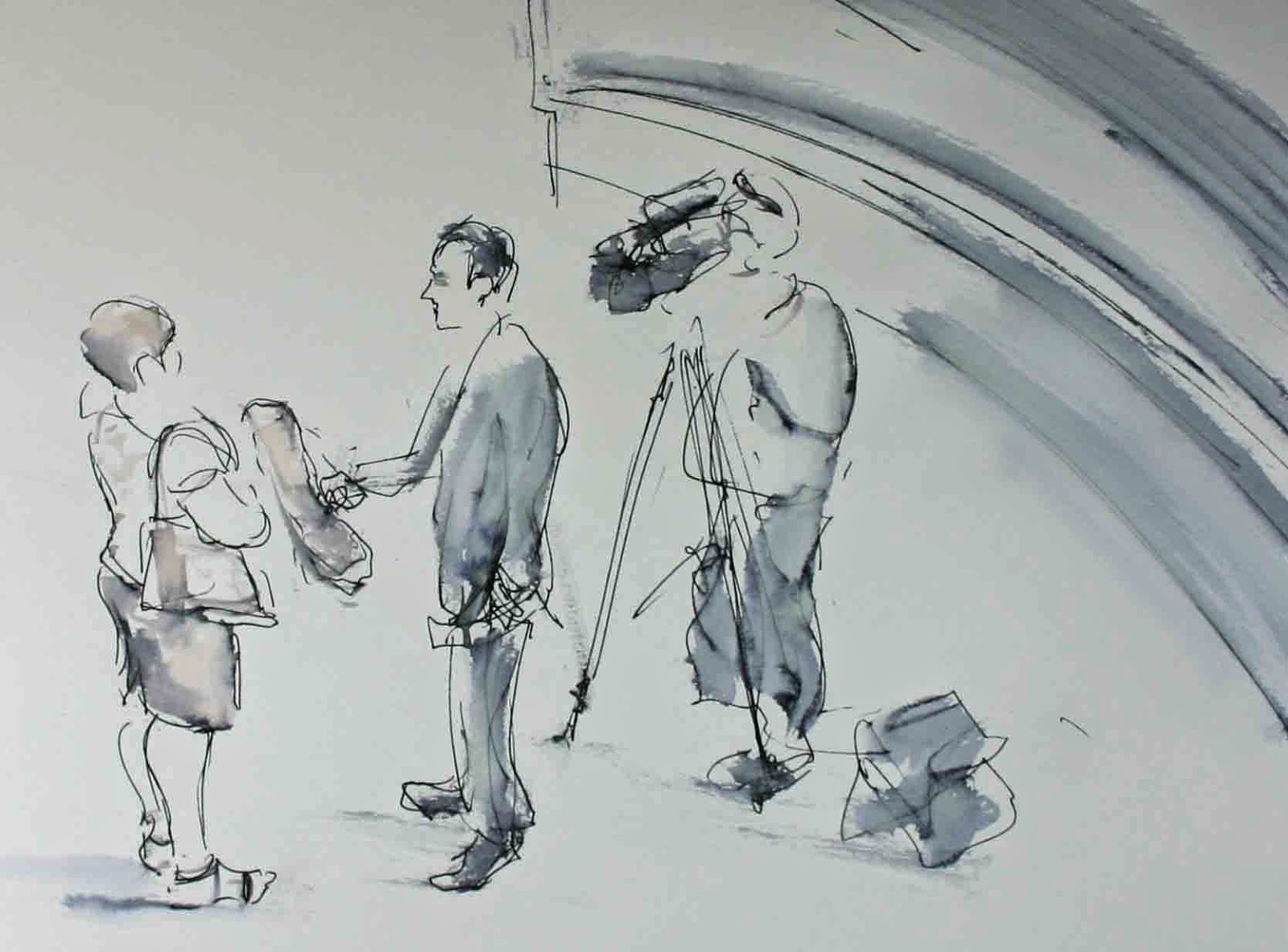[contextly_auto_sidebar]

Sketch by Isobel Williams. www.isobelwilliams.blogspot.co.uk
Media groups have lost an appeal to lift reporting restrictions on terrorism trials held in secret. The challenge followed the secret trial of a law student, Erol Incedal who had been cleared of plotting a terrorist attack in London. Erol Incedal, 28, had been jailed for 42 months after being found with a bomb-making manual on a memory card hidden in his phone.
However, the jury were unable to reach a verdict on whether he had plotted an attack on London. After a retrial, Incedal was acquitted.
As reported in the Guardian – which along with other media groups brought the appeal – journalists were allowed to appear in court but were not allowed to report what had been said and could only refer to Incedal as AB.
After the media objected, the court of appeal permitted his identification and ordered that the court could be heard in three parts: open court sessions, secret sessions, and intermediate sessions which the press could attend but not report.
At the end of the retrial, Sir Andrew Nicol, the case judge, decided against lifting the reporting restrictions, meaning that reasons for the verdict could not be reported.
This prompted the launch of a second appeal by the media, in which the lord chief of justice, Lord Thomas, disclosed that MI5 and MI6 had been responsible for the initial demands for secrecy. Westminster’s intelligence and security committee had been invited to investigate the role MI5 and MI6 had in imposing the secrecy.
The court of appeal’s judgment was released yesterday. Lord Thomas emphasised that it ‘must be for the DPP, and the DPP alone’ whether to ‘prosecute and, if so, whether to apply to the court for part of the proceedings to be heard in camera’. The court was ‘quite satisfied’ from the nature of the evidence that ‘a departure from the principles of open justice was strictly necessary if justice was to be done’.
‘As with all cases involving allegations of terrorism, there is a strong public interest in understanding the role of the counter terrorism branch of the police and of the security and intelligence services, provided that what is made public does not materially compromise the effectiveness of their role or otherwise might damage national security. Whereas the prosecution, the executive and those representing a defendant might all have the same or different reasons, depending on the circumstances of the case, for keeping matters out of the public domain, the press performs the vital role of protecting the public interest.’
Lord Thomas
The BBC’s Jeremy Britton described the ‘dubious privilege’ of being one of 10 select journalists to sit in on the two secret trials of Erol Incedal. ‘For the journalists having to place our mobile phones in a metal case every time we entered court, and having to hand over our notebooks to be locked up in a safe at the end of every day, it was both time consuming and embarrassing,’ he said.






